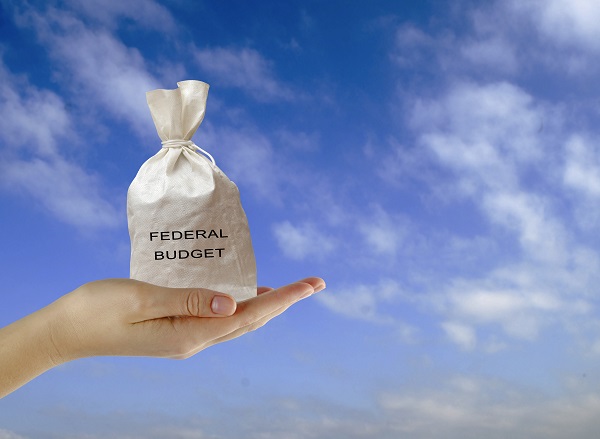
Federal budget: what does it mean for the accommodation sector?
The ears of the business world tuned in on one night in May to listen to new treasurer Scott Morrison as he delivered his first budget.
The clear message from the current government is that small businesses need to be supported to help grow the economy. More broadly, prime minister Malcolm Turnbull wants to encourage Australians who are prepared to take a risk in business and as management rights owners, this is good news!
The budget announcements are still only proposed at this stage and with an election looming, we can never be certain that all proposed changes will become law. With that said, we are confident that both parties want to help small businesses to grow so the changes may not be opposed by the Labor party.
So… what is in it for us?
Lifting tax brackets for individuals
From July 1, 2016, the 32.5 percent individual tax bracket will lift from $80,000 to $87,000. An upward movement in the tax bracket is good news because it means that more of your income is taxed at a lower rate. You pay 37 cents in tax for every dollar earned above the new $87,000 bracket.
This is a real tax saving for many management rights owners, particularly where the management rights is owned in a trust and the trust tax profit is netting over $150,000 for a couple.
Increase in tax discount for small business tax offset
From July 1, 2016, the government is giving small businesses further help by increasing the small business tax offset to eight percent. This offset applies where you are running the business in your own name or in a trust and means that you get a reduction on the tax you pay from those business profits.
The government is really keen to reward Australians who are taking a chance with business and the plan is to keep raising the discount over the next decade to 16 percent by 2027.
These changes mean real cash in the pocket for small business but before getting too carried away, you should be aware that the tax saving is capped at $1,000 per individual per income year.
The company tax rate cut again for small business
Effective from July 1, 2016, the company tax rate for small businesses is coming down to 27.5 percent. This means that the small business tax rate has dropped from 30 percent to 27.5 percent in just two years. Clearly the government wants to leave more of those hard earned profits in small businesses so that the business owner can reinvest and grow their business.
As the tax cut will apply from July 1, 2016, companies with PAYG instalments should benefit from their first payment after July 1, 2016.
The current maximum franking credit rate for a distribution will remain unchanged at 30 percent for all companies.
Many management rights owners would have preferred to buy the management rights in a family trust in order to take advantage of the capital gains tax concessions so the changes to the individual tax bracket and small business tax offset will be more important.
The $20,000 write-off will expire on June 20, 2017
While the government plans to allow more businesses to take advantage of the $20,000 write-off (see above) it has decided not to extend the incentive beyond June 30, 2017.
This means that you have just over 12 months to take advantage of this incentive so you may want to start budgeting for any significant business purchases now.
While we all love tax incentives, you should make sure that the business asset purchase is going to help the profitability of your management rights and remember that some of the tax benefits may be clawed back if you are using the asset for your own private purposes.
Annual cap on deductible superannuation contributions
The government is looking to reduce tax breaks for contributions to your superannuation and this may impact on tax planning strategies.
From July 1, 2017, the government will propose a fixed cap of $25,000 on the amount of concessional contributions that can be made from your employer or from your own management rights business.
The current rules allow for a person 48 years or under to get a deduction for contributions up to $30,000. If you 49 or over, the cap increases to $35,000.
As many management rights owners have ceased external employment to focus on the management rights, they no longer receive employer superannuation guarantee contributions. Many management rights owners take full advantage of the $35,000 deduction for the concessional contribution, which will be capped at $25,000 as of July 1, 2017.
As the old rules will continue to apply until June 30, 2017 you may want to take full advantage of the higher concessional caps while you still can.
There are some positive changes that will allow individuals who are still employed to make personal contributions.
The low income tax offset has been lifted for spouse superannuation contributions
The government will increase access to the low income spouse superannuation tax offset by enabling you up to make contributions of up to $540 to your spouse’s superannuation provided that your spouse earns less than $37,000.
The law, as it currently stands, only allows you to make a contribution if your spouse earns less than $10,800.
Every little bit into your super counts!
Industry impacts
The budget provided mixed results for the tourism industry generally. This is clearly an area that will continue to be a key contributor to the Australian economy so we would expect that the government would be seeking to support the industry.
On budget night, the government maintained its stance over the controversial ‘backpacker tax’. Under this initiative, the government plans to levy a flat 32.5 percent tax for income received by backpackers while travelling in Australia. For management rights owners, backpackers may not be the target market; however, any impact on accommodation demand is likely to have an impact on occupancy and/or tariffs.
Since the budget, the government has announced that it would review the controversial backpacker tax so maybe the message is getting through.
Also on budget night, we learnt that the government might try to raise indirect revenue from a number of measures, which again may impact on international tourist numbers. These changes include:
- Raising the cost of an Australian passport by $20, followed by an incremental increase over a four-year period resulting in a $173 total increase;
- Implementing a ‘user-pays’ express Visa processing option for certain countries;
- Additional fees levied on airport operators that provide “premium border clearance services”.
In all, the budget produced a mixed bag for management rights owners. Certainly the current government is intent on growing the economy by promoting innovation and providing support to small business owners. The caps on superannuation may impact some but for most the reforms just mean that you need to make sure you are planning for retirement.






